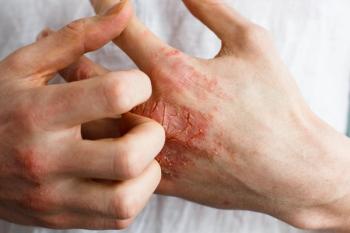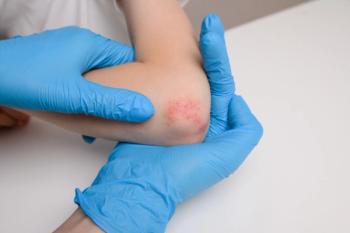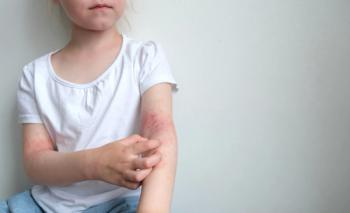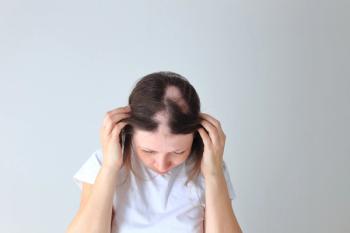
JAK Inhibitors Safe, Effective For Hair Growth in Patients With Alopecia Areata
A study found that patients achieved 50% improvement with JAK inhibitors compared to placebo.
To evaluate the safety and effectiveness of Janus kinase (JAK) inhibitors for treatment of alopecia areata (AA), researchers conducted a systematic review and meta-analysis of 7 randomized clinical trials of 1710 patients. They found that JAK inhibitors, particularly when taken orally, led to greater hair regrowth than placebo.1
The primary outcomes studied were the proportion of patients reaching 30%, 50%, and 90% improvement in Severity of Alopecia Tool (SALT) score from baseline, the change from baseline SALT score, and adverse events (AEs) related to treatment. The study of trials from 2019 to 2022 included 1083 females (63.3%) from 11 countries.
In 2 of the studies, researchers evaluated the effectiveness of the topical JAK inhibitors ruxolitinib and delgocitinib. The other 5 studies examined the efficacy of the oral JAK inhibitors ritlecitinib, brepocitinib, deuruxolitinib, and baricitinib.
In the 5 trials reporting on SALT 50, results showed that more patients achieved 50% improvement with JAK inhibitors than placebo (OR, 5.28 [95% CI, 1.69-16.46]). A subgroup analysis determined, “that oral JAK inhibitors were associated with more patients achieving a 50% improvement in SALT score from baseline compared with placebo, and no difference in outcome was found between external JAK inhibitors and placebo.”1
Of the 5 trials evaluating SALT 90, results showed that more patients reached 90% improvement from baseline than those given a placebo (OR, 8.15 [95% CI, 4.42-15.03]). The oral JAK inhibitors also resulted in a greater number of patients achieving SALT 90. “Subgroup analysis showed that ritlecitinib, brepocitinib, and baricitinib were associated with more patients achieving a 90% improvement in SALT score from baseline compared with placebo, and no difference was found for ruxolitinib.”1
The 7 trials reviewed did not show a higher incidence of AEs among those treated with JAK inhibitors than those given a placebo.
Overall, the meta-analysis results showed that JAK inhibitors are more effective than placebo in creating hair regrowth, particularly when taken orally. Authors suggested that more research needs to be done to determine the level of AA (mild, moderate, or severe) that benefits most from JAK inhibitors.
Reference
1. Liu M, Gao Y, Yuan Y, et al. Janus kinase inhibitors for alopecia areata: A systematic review and meta-analysis. JAMA Netw Open. 2023;6(6):e2320351. doi:10.1001/jamanetworkopen.2023.20351 https://jamanetwork.com/journals/jamanetworkopen/fullarticle/2806418
Newsletter
Pharmacy practice is always changing. Stay ahead of the curve with the Drug Topics newsletter and get the latest drug information, industry trends, and patient care tips.























